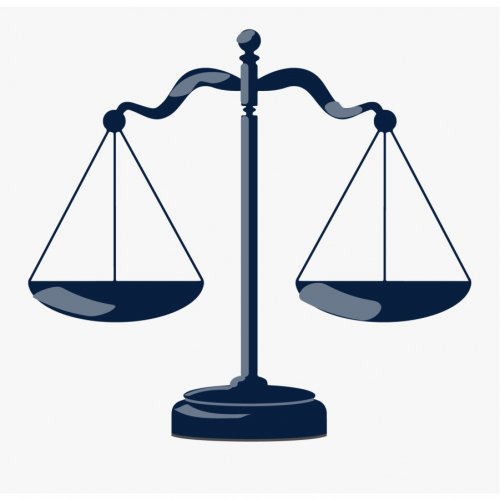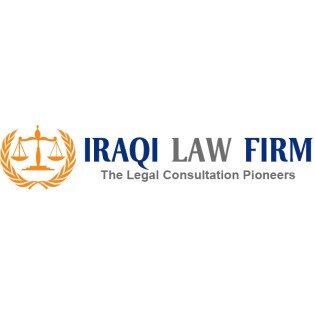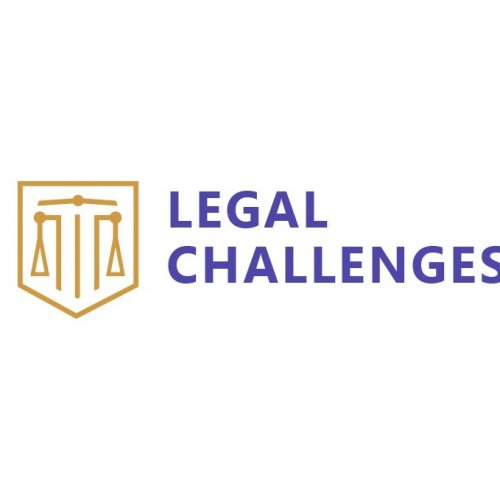Best Corporate Governance Lawyers in Iraq
Share your needs with us, get contacted by law firms.
Free. Takes 2 min.
Or refine your search by selecting a city:
List of the best lawyers in Iraq
About Corporate Governance Law in Iraq
Corporate governance refers to the system of rules, practices, and processes by which companies are directed and controlled. In Iraq, corporate governance has become increasingly important as the country opens up to foreign investment and modernizes its corporate sector. Iraqi corporate governance laws aim to ensure transparency, accountability, fairness, and responsibility in the management of companies, especially joint-stock companies and those listed on the Iraq Stock Exchange. Laws and regulations also cover issues such as the rights of shareholders, duties of company boards, disclosure requirements, and mechanisms to address conflicts of interest.
Why You May Need a Lawyer
Navigating corporate governance rules in Iraq can be complex and requires a thorough understanding of both the law and local business practices. You may need a lawyer in situations such as:
- Setting up a new company or joint venture, particularly if foreign ownership is involved
- Drafting and reviewing company bylaws, shareholder agreements, and governance policies
- Understanding and complying with disclosure and reporting requirements
- Resolving disputes between shareholders or between the board and management
- Advising on the duties and liabilities of directors and officers
- Ensuring compliance with anti-corruption and anti-money laundering laws
- Representing your company before regulatory bodies and courts
A qualified lawyer can help you avoid costly mistakes, minimize legal risks, and ensure your company maintains good standing in Iraq.
Local Laws Overview
Some of the key aspects of local laws related to corporate governance in Iraq include:
- Companies Law Number 21 of 1997 - This is the primary piece of legislation governing company formation, management, board structure, and shareholders’ rights in Iraq.
- Capital Markets Law Number 74 of 2004 - This law regulates companies listed on the Iraq Stock Exchange, including requirements for financial disclosures, internal controls, and protection of minority shareholders.
- Corporate transparency - Companies must maintain accurate records and often submit annual financial statements, audited by licensed auditors, to regulatory authorities.
- Board responsibilities - The law sets forth duties of care and loyalty for directors and officers, as well as procedures for holding board meetings and general assemblies.
- Shareholder rights - Shareholders have the right to vote, receive dividends, and review some company documents. Laws also address how shareholder meetings are called and conducted.
- Regulatory agencies - The Companies Registration Office and the Iraq Securities Commission have oversight over corporate governance matters and impose penalties for violations of the law.
Understanding these laws is vital to ensuring organizational compliance and preventing legal disputes in the Iraqi market.
Frequently Asked Questions
What is the main law governing corporate governance in Iraq?
The Companies Law Number 21 of 1997 is the principal legal framework for corporate governance in Iraq, supplemented by the Capital Markets Law if the company is publicly listed.
Are foreign investors allowed to own companies in Iraq?
Yes, foreign investors can own companies in Iraq, but there are specific registration procedures and certain sectors with restrictions. It is important to consult with a lawyer to understand the limitations and requirements.
What are the responsibilities of company directors in Iraq?
Directors are required to act in the company’s best interest, perform their duties with care and loyalty, avoid conflicts of interest, and ensure compliance with all applicable laws and regulations.
What records must companies keep under Iraqi law?
Companies must keep accurate records of financial transactions, minutes from board and shareholder meetings, and maintain registers of shareholders and directors. These records may be reviewed by regulatory authorities.
What are the penalties for failing to comply with corporate governance requirements?
Penalties can include fines, suspension of business activities, removal of directors, and in serious cases, criminal prosecution. The severity depends on the violation and its impact.
How are shareholder disputes resolved?
Disputes are usually resolved through internal company mechanisms, mediation, or, if necessary, litigation in Iraqi courts. Arbitration may also be an option if agreed by the parties.
How often do companies need to hold general shareholder meetings?
Most companies are required to hold at least one annual general meeting to approve financial statements and elect board members. Additional meetings may be convened as needed.
Are there requirements for disclosing financial statements?
Yes, companies, especially those publicly listed, must prepare annual financial statements and have them audited. These statements are submitted to the Companies Registration Office or Iraq Securities Commission.
Does Iraqi law protect minority shareholders?
Yes, laws provide certain protections for minority shareholders, including rights to vote, access information, and challenge resolutions they believe violate their rights or the law.
Who enforces corporate governance laws in Iraq?
The Companies Registration Office and the Iraq Securities Commission are the primary agencies responsible for enforcing corporate governance and related regulations.
Additional Resources
Individuals or businesses seeking more information on corporate governance in Iraq can consult the following resources:
- Companies Registration Office - Handles company formation, registration, and maintains public company records.
- Iraq Securities Commission - Regulates companies listed on the Iraq Stock Exchange and enforces disclosure and governance rules.
- Iraq Stock Exchange (ISX) - Offers guidelines and rules for listed companies regarding transparency and investor protection.
- Chambers of Commerce - Regional chambers often provide informational sessions and resources on best corporate practices.
- Legal advisors and law firms specializing in Iraqi corporate law - Can provide tailored guidance based on your company’s structure and industry.
Next Steps
If you require assistance with corporate governance in Iraq, consider the following steps:
- Identify and clearly define your needs - for example, company formation, compliance review, or dispute resolution.
- Gather all relevant documents relating to your company, such as bylaws, shareholder registers, and prior correspondence with regulators.
- Consult with a qualified lawyer or legal advisor experienced in Iraqi corporate governance. Prepare a list of your questions and concerns in advance.
- Work with your advisor to develop a compliance checklist based on current laws and regulations. Address any gaps or potential issues identified.
- Stay informed about any updates or changes to Iraqi corporate laws, as the legal landscape is evolving with economic development.
Timely legal advice can help your company avoid regulatory pitfalls, foster positive investor relations, and position your business for long-term success in Iraq.
Lawzana helps you find the best lawyers and law firms in Iraq through a curated and pre-screened list of qualified legal professionals. Our platform offers rankings and detailed profiles of attorneys and law firms, allowing you to compare based on practice areas, including Corporate Governance, experience, and client feedback.
Each profile includes a description of the firm's areas of practice, client reviews, team members and partners, year of establishment, spoken languages, office locations, contact information, social media presence, and any published articles or resources. Most firms on our platform speak English and are experienced in both local and international legal matters.
Get a quote from top-rated law firms in Iraq — quickly, securely, and without unnecessary hassle.
Disclaimer:
The information provided on this page is for general informational purposes only and does not constitute legal advice. While we strive to ensure the accuracy and relevance of the content, legal information may change over time, and interpretations of the law can vary. You should always consult with a qualified legal professional for advice specific to your situation.
We disclaim all liability for actions taken or not taken based on the content of this page. If you believe any information is incorrect or outdated, please contact us, and we will review and update it where appropriate.
Browse corporate governance law firms by city in Iraq
Refine your search by selecting a city.

















